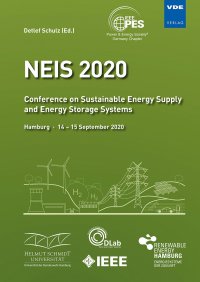Exploration of Computational Intelligence Strategies for Increasing the Degree of Self-Sufficiency of Microgrids
Konferenz: NEIS 2020 - Conference on Sustainable Energy Supply and Energy Storage Systems
14.09.2020 - 15.09.2020 in Hamburg, Deutschland
Tagungsband: NEIS 2020
Seiten: 8Sprache: EnglischTyp: PDF
Autoren:
Raedle, Stefan; Mast, Johannes; Gerlach, Joachim (Albstadt-Sigmaringen University, Albstadt, Germany)
Bringmann, Oliver (University of Tübingen, Tübingen, Germany)
Inhalt:
The expansion of renewable energies and the resulting decentralization of the electricity production poses major challenges for electricity grids. A solution approach for this problem is the creation of self-sufficient (island mode) microgrids. Since the electricity required in such a microgrid is primarily produced and consumed locally (up to 100 %), less electricity has to be transported over long distances via cables. However, the goal of keeping the degree of selfsufficiency of a microgrid reliably on a high level turns out to be a difficult task due to various constraints such as the composition of the local electricity production or the additional consideration of electric vehicles. In order to address this problem, this paper presents a two-step optimization methodology which allows to increase the degree of selfsufficiency of a microgrid based on a composition of local power plants, consumers and electric vehicles. To implement the methodology, two Computational Intelligence (CI) metaheuristics are applied and compared: Simulated Annealing (SA) and Particle Swarm Optimization (PSO). On the basis of an example scenario as well as extensive, aggregated test runs, the results show that the proposed methodology is capable of reliably increasing the degree of self-sufficiency of a microgrid.


